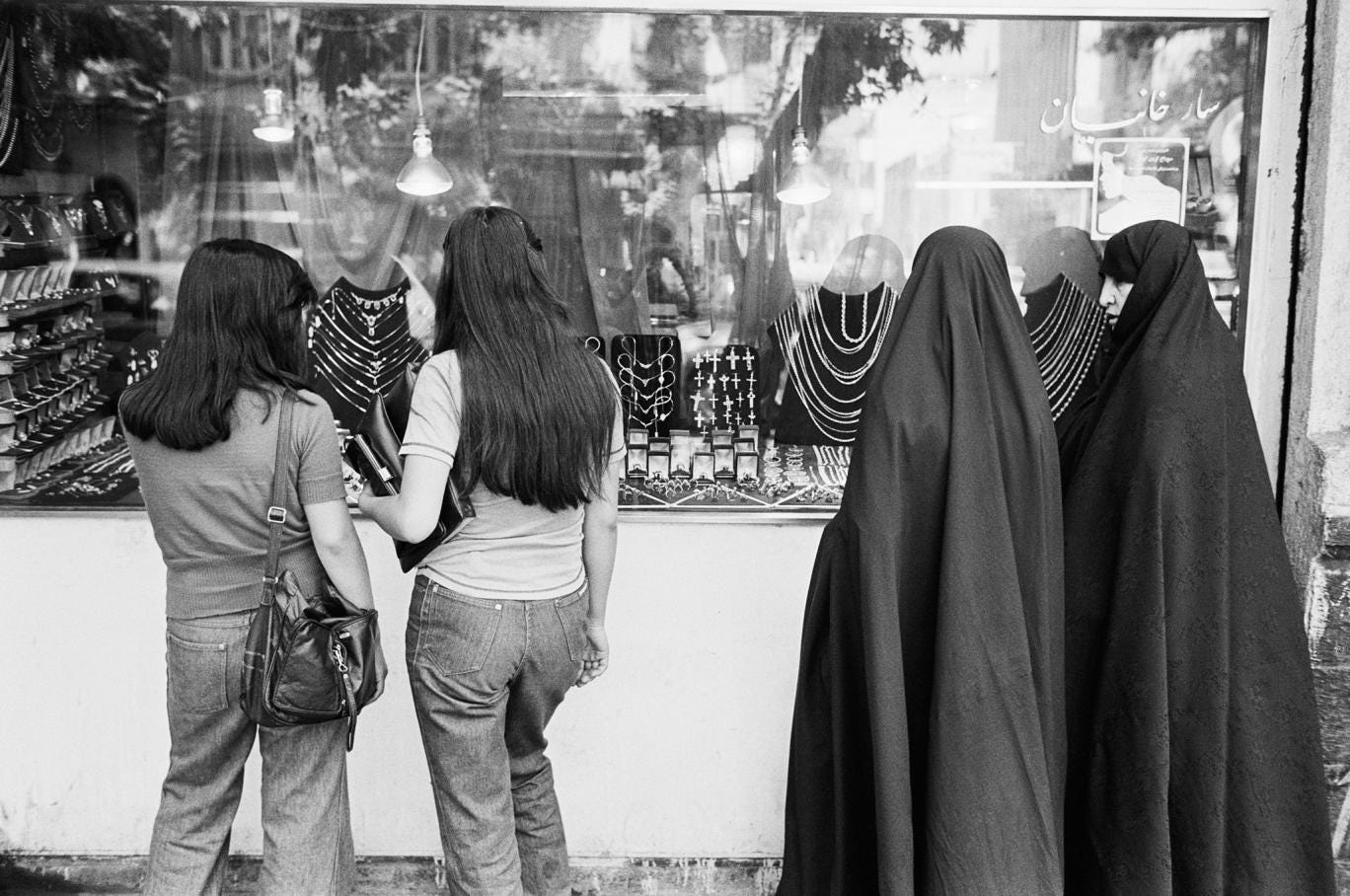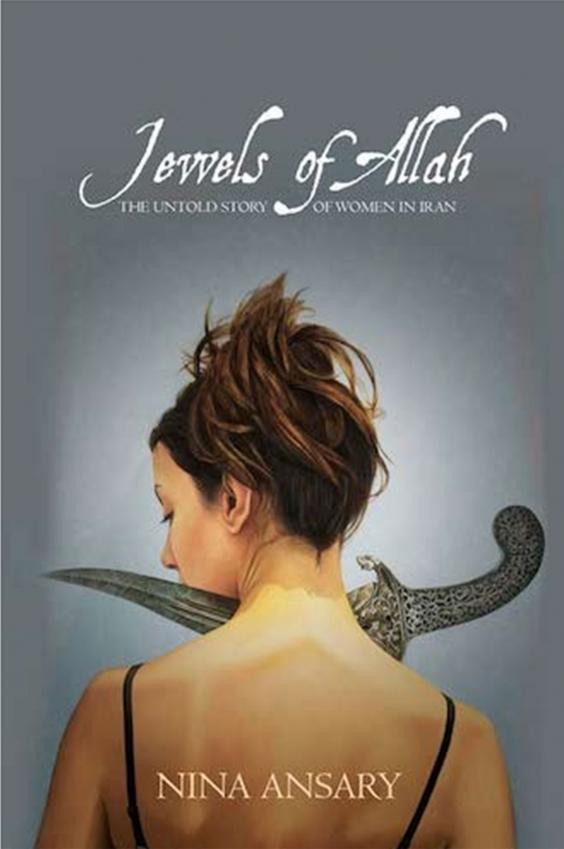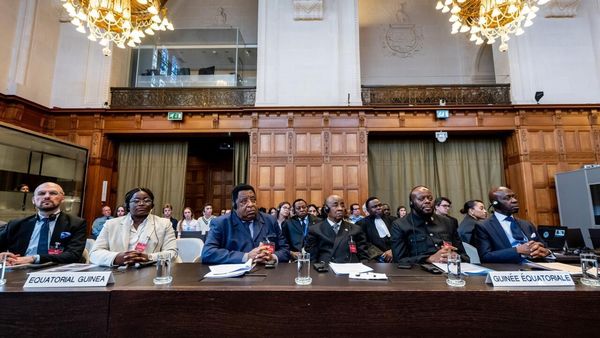
Nina Ansary has gone to great effort to collect evidence in her work that contradicts the traditional narrative of Iranian women.
The historian, human rights activist and lead expert on the Iranian women's rights movement is discussing her new book, Jewels of Allah, in the rather imposing surroundings of Claridges, London.
Women in Iran were emancipated under the Pahlavi monarchy by Reza-Rhah Pahlavi and his son Mohammed Reza Pahlavi, then forced back into oppression under its current Supreme Leader Ali Khamenei: these are cited as narratives which come predominantly from mainstream US media, alongside her own family's experience of Iran before, during and after the Islamic Revolution of 1979.
What led the Tehran-born scholar to delve deeper was the "puzzling" idea that, initially, women were some of Khamenei’s biggest supporters.
Peppermint tea cooling by her side, she leans forward to explain how she "couldn’t understand" why educated women would support a misogynist cleric, “given that the Shah had emancipated the Iranian woman”.
Further research led Ansary, who has not been able to return to her country of birth since 1979, to find a "very convoluted social-political landscape" spanning centuries.
"So it’s not really easy to label women as oppressed in the way we’re oppressed in western culture. Women in Iran do not reflect or symbolise the discriminatory gender laws, nor the antiquated gender ideology, of the ruling entity. They have made remarkable strides despite all the obstacles. There’s a flourishing and vibrant women’s rights movement, despite the fact that the regime consistently tries to silence them."
“Fortunately the generation today is very savvy,” she says, speaking of the thousands of Iranians who follow her on Twitter and share their stories in the hope that they will dispel some of the misconceptions about Iran in western society.
“The conversations I have with these women are the best part of my day. They’re setting an important example that you don’t have to surrender to these irrational laws.”
Atena Faraghandi is one such example: the 29-year-old painter and activist sentenced to 12 years and nine months in prison over cartoons seen to be critical of the Iranian regime.
Arrested in August 2014, her trial in June this year lasted half a day after evidence that relied on long stretches of interrogation, as she was held in solitary confinement without access to a lawyer.
On the day of our interview, Amnesty International receives a leaked note from prison that says she was forced to undergo a virgininity and pregnancy test ahead of the trial to "investigate the charges against her".
"Atena went on hunger strike simply for doing something you and I would do in this country every day," Ansary says, and beneath the calm you can hear anger in her voice.
There are a number of women in Iran finding ways to rebel by challenging the traditional gender roles assigned to them by the patriarchy.
Not marrying, and consequently not having children in a nation that hails women as wives and caregivers, is a bold and courageous move of defiance: To tackle this “problem”, Khamenei announced he was considering a band on contraception and sterilisation, and this is what Atena Faraghandi was protesting.
“With the Shah and his father they were extremely visionary, with an enormous amount of integrity in what they did, which was to try and bring Iran out of backwardness,” Ansary says. “But it was done overnight, in a very rapid format, not in tune with the cultural format of Iran, with religion and a culture of modesty being the dominant factors.
"A small group of women understood and embraced those changes overnight. But my own grandmother – one of my grandmothers – never stopped wearing her headscarf. For us outsiders, and even for myself as an Iranian woman, that veil was always looked at as a form of subservience or backwardness. But if something is worn by a woman, if she chooses to wear it, it empowers her: no one should judge her for that. A woman’s appearance is not something that automatically translates into our version of oppression.”
Other forms of rebellion have taken place in publications such as Zanan magazine, launched in 1992 by Shahla Sherkat. With a circulation of around 40,000 per month, Zanan covered taboo subjects and published the work of women writers such as Mary Wollstonecraft, Kate Chopin, Simone de Beauvoir, Virginia Woolf and Alice Walker.
And more recently, educated, religious women have got together to reinterpret passages of the Koran, something which is considered blasphemous by hardline Islamic factions.
"There are women’s rights activists who want to maintain their religiosity but don’t subscribe to the interpretations made by hardline clerics," Ansary nods. “These women have gone and courageously reinterpreted these passages to show the interpretation is so vague at best it doesn’t mean women are second class citizens.
"They have also shown that these verses of the Koran are fluid and are able to evolve and adapt to the needs of the 21st century, a new and bold move that also has importance for women in other Muslim nations.
"For example, in Iran, a man is able to have up to four wives,” she observes. “They have relegated that to verses in the Koran. Everything that is carried out is the will of Allah."
What these women have done, then, is reinterpret the text to read that, while a man may have up to four wives, he may only do so if he is able to treat them equally. Which, Ansary points out, is humanly impossible.
"So that really nullifies that theory,” she says, smiling. “They’re doing this in an intelligent but respectful manner, finding liberation within the text."
I ask her about the women who are already mothers, who have children: how can they fight the oppressive regime they live under?
"Women should never forget that as mothers they have the power to change this ingrained way of thinking. To make every man out there to think twice that they’re only here because a woman gave birth to them."
She beams as she speaks about the young men who came out in support of Iranian football captain Niloufar Ardalan after she was banned from playing abroad by her husband.
The standard marriage contract signed by newlyweds allows the husband to waive its provisions, and some men have begun to done so following news of Ardalan's story; sending images of themselves to Masih Alienejad, creator of "My Stealthy Freedom".
Ansary hopes that, with the publication of her book, people might begin to rethink their views on Iran. "It's an extremely warm and hospitable population that needs a voice, with people who are so hungry to embrace western culture. Iran is guilty of many things... Its human rights crisis is deplorable - but there are millions of innocent people behind that face, who are not guilty of that.
"The main goal is for Iran to come out of isolation, and for women in Iran to prevail," she says. "For the human rights crisis to be addressed; for the women’s activists; the unlawful incarnation of these women… I want these to be reconciled."
Nina Ansary's book Jewels of Allah is out now. 100 per cent of all proceeds from the sale of the book will go to various charitable organizations and institutions, with the primary recipient being the OMID Foundation









